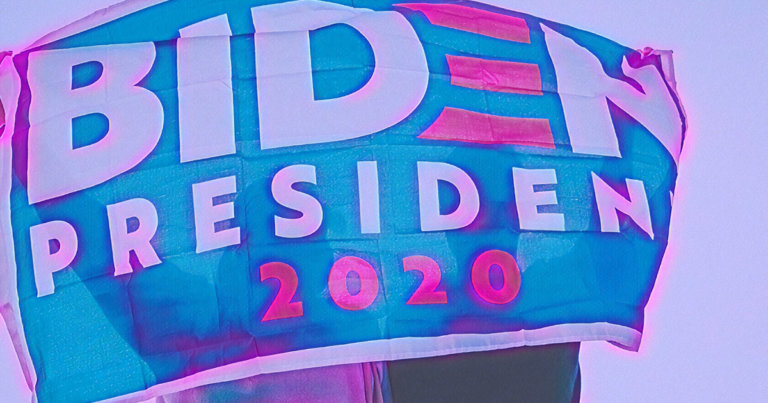 Why Joe Biden’s presidency could be a fresh start for crypto
Why Joe Biden’s presidency could be a fresh start for crypto Why Joe Biden’s presidency could be a fresh start for crypto

Photo by Gayatri Malhotra on Unsplash
The Biden administration’s first decisions and appointments look promising for the crypto industry as a whole so far.
Shortly after his inauguration, US President Joe Biden and his administration have already made several important decisions that could be considered quite positive for the crypto industry, starting with the postponement of the Treasury’s controversial proposals aimed at self-hosted crypto wallets.
No need to rush
On his first day in the office, Joe Biden has put on hold all “new or pending” regulatory rules until his administration reviews them—including the Financial Crimes Enforcement Network’s (FinCEN) crypto proposals.
In the memorandum, White House’s chief of staff Ronald Klain called agencies to “consider postponing the rules’ effective dates for 60 days from the date of this memorandum, consistent with applicable law […] for the purpose of reviewing any questions of fact, law, and policy the rules may raise.”
President Biden has frozen all agency rulemaking pending further review. This includes former Secretary Mnuchin's proposal on "unhosted wallets."
We fought hard & earned the right to take a breath & reset. Janet Yellen isn't Steve Mnuchin. I'm optimistic.https://t.co/0EAmYhbqa5
— Jake Chervinsky (@jchervinsky) January 21, 2021
In December, the FinCEN, a bureau of the US Department of the Treasury that fights money laundering, terrorist financing, and other financial crimes, issued several crypto-related proposals that drew the ire of privacy advocates across the board.
One of the FinCEN’s new proposals looks to oblige banks and other money services businesses to monitor and “submit reports, keep records, and verify the identity of customers” who use self-hosted crypto wallets and send transactions that exceed $3,000.
In his open letter, Coinbase CEO Brian Armstrong previously noted that not only the proposed rules are archaic, but they were happening unusually quickly as the regulator gave the public only 15 days to comment.
“Typically proposed regulations this significant come only after a long period of informal discussion with the industry and the public, which helps the government craft a fair rule that makes sense. Then the public gets at least 60 days to comment on the actual proposed rule. That’s not what happened here,” Armstrong wrote, adding, “This is not how the process should work.”
But it looks the public will get the 60 days it’s due after all.
Appointees familiar with crypto
Simultaneously, Biden is likely to nominate Michael Barr, a former Treasury official and advisor to cryptocurrency-focused firm Ripple Labs, as the new head of the Office Comptroller of the Currency (OCC), according to The Wall Street Journal’s recent report.
“Our global payments system is badly outdated. I think innovation in payments can help make the financial system safer, reduce cost, and improve access and efficiency for consumers and businesses alike,” Barr said when he was named Ripple’s advisor in 2015.
Notably, Barr’s predecessor Brian Brooks also had ties to the crypto industry. Before taking on the role of the Comptroller of the Currency, he served as a chief legal officer at crypto exchange Coinbase. Under his watch, the OCC has issued a guidance document for banks, clarifying that financial institutions are allowed to use stablecoins and blockchains.
As CryptoSlate reported recently, it was also confirmed that Gary Gensler will become the new head of the Securities and Exchange Commission. Commenting on this, IOHK CEO Charles Hoskinson noted that since Gensler is a professor of blockchain at MIT, there are currently no reasons to suspect that some especially anti-crypto rules will ensue.
“There is no indication at the moment that there is going to be a very anti-crypto SEC,” said Hoskinson.
Ultimately, the Biden administration’s first actions likely suggest that the crypto industry will at the very least be treated fairly in the near future.



 Farside Investors
Farside Investors 

















































































